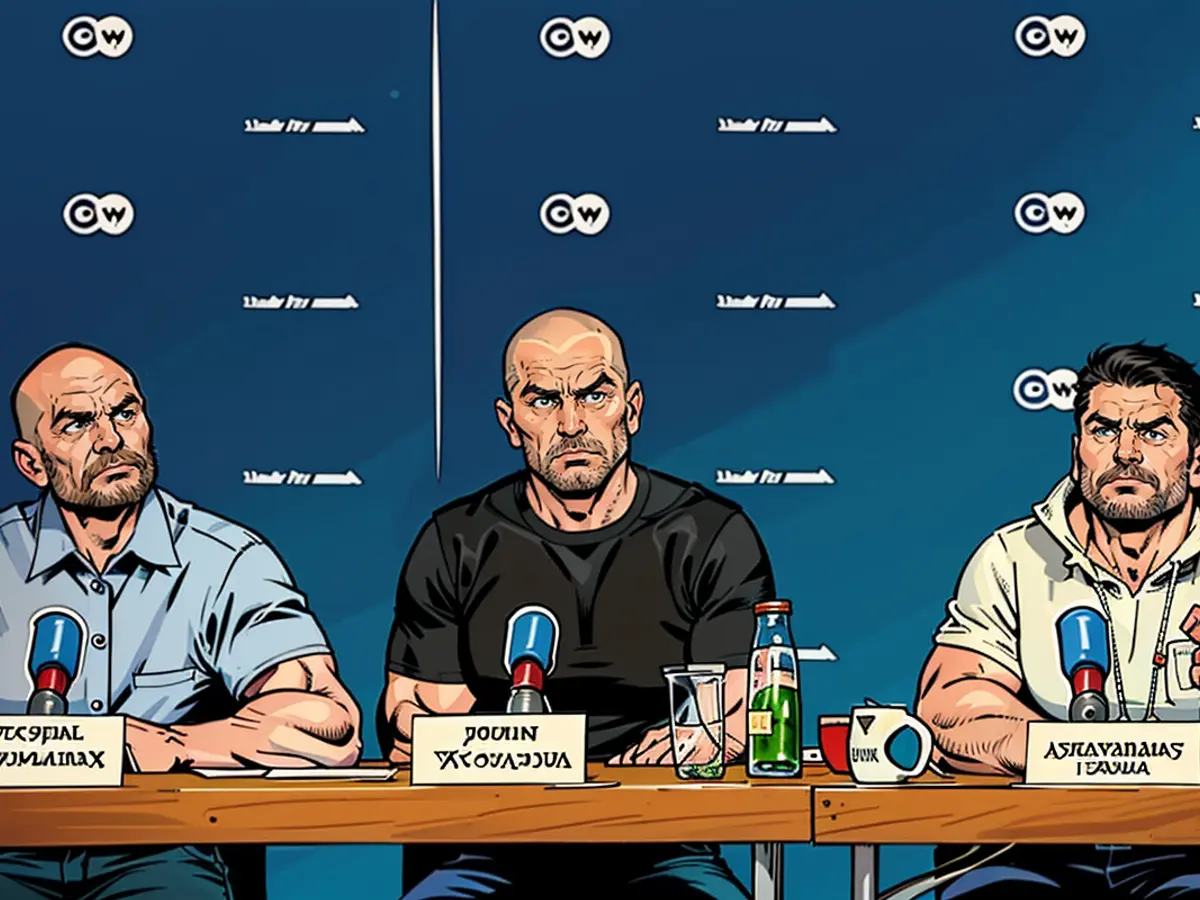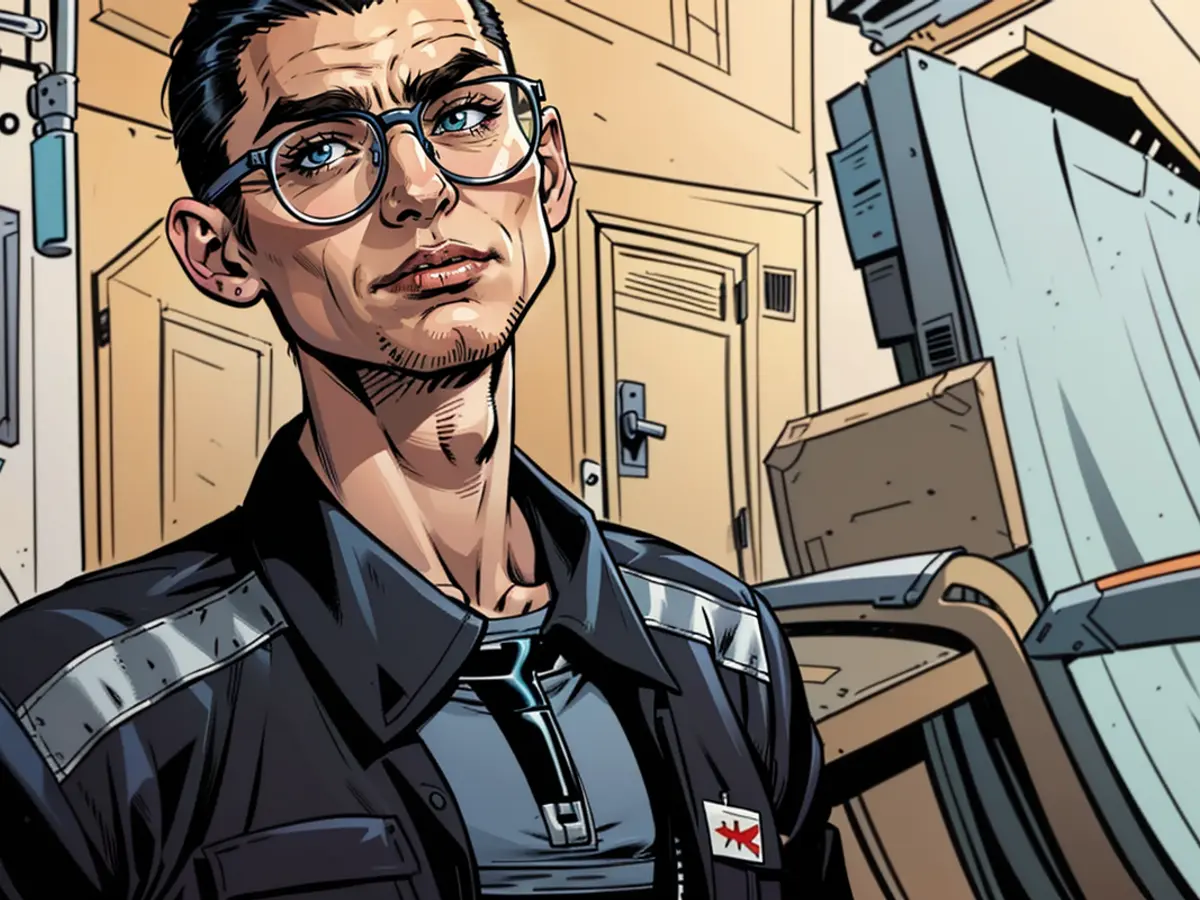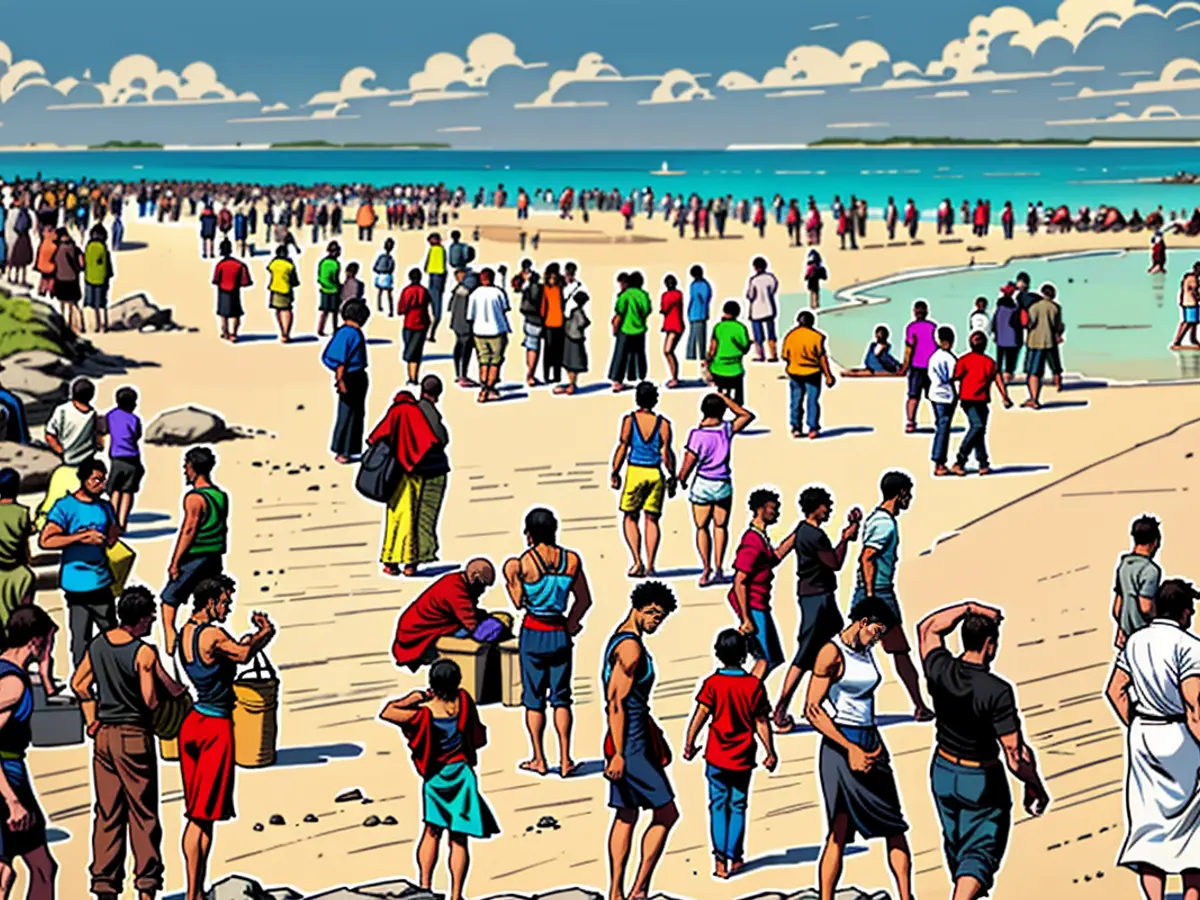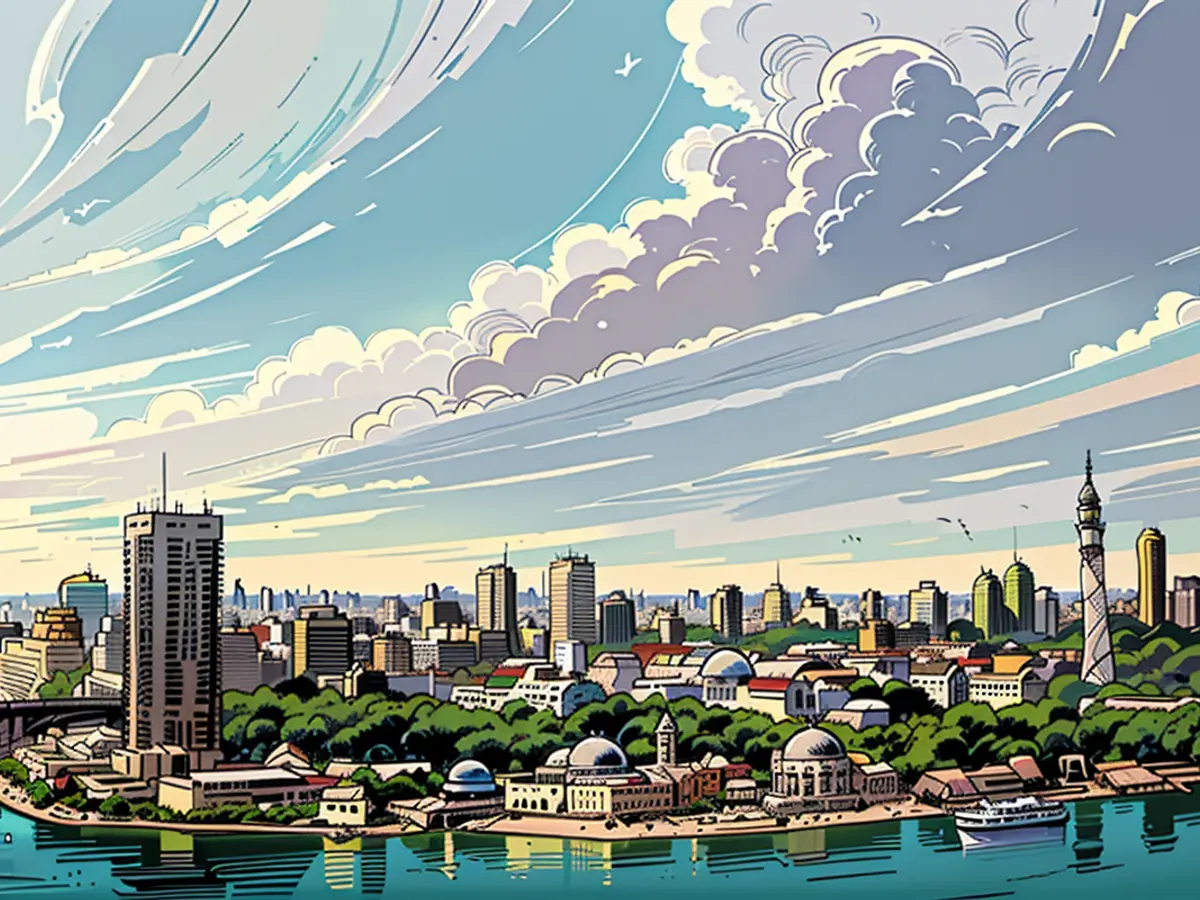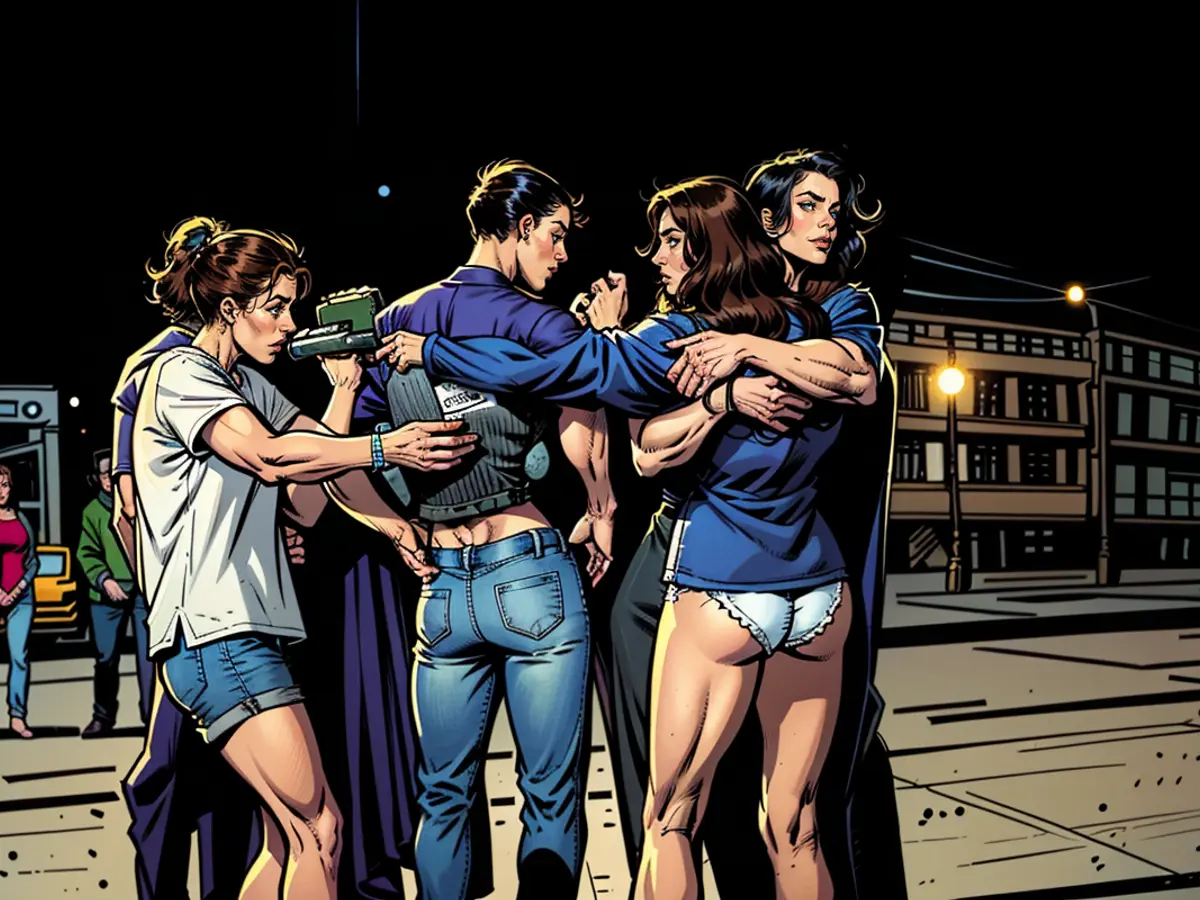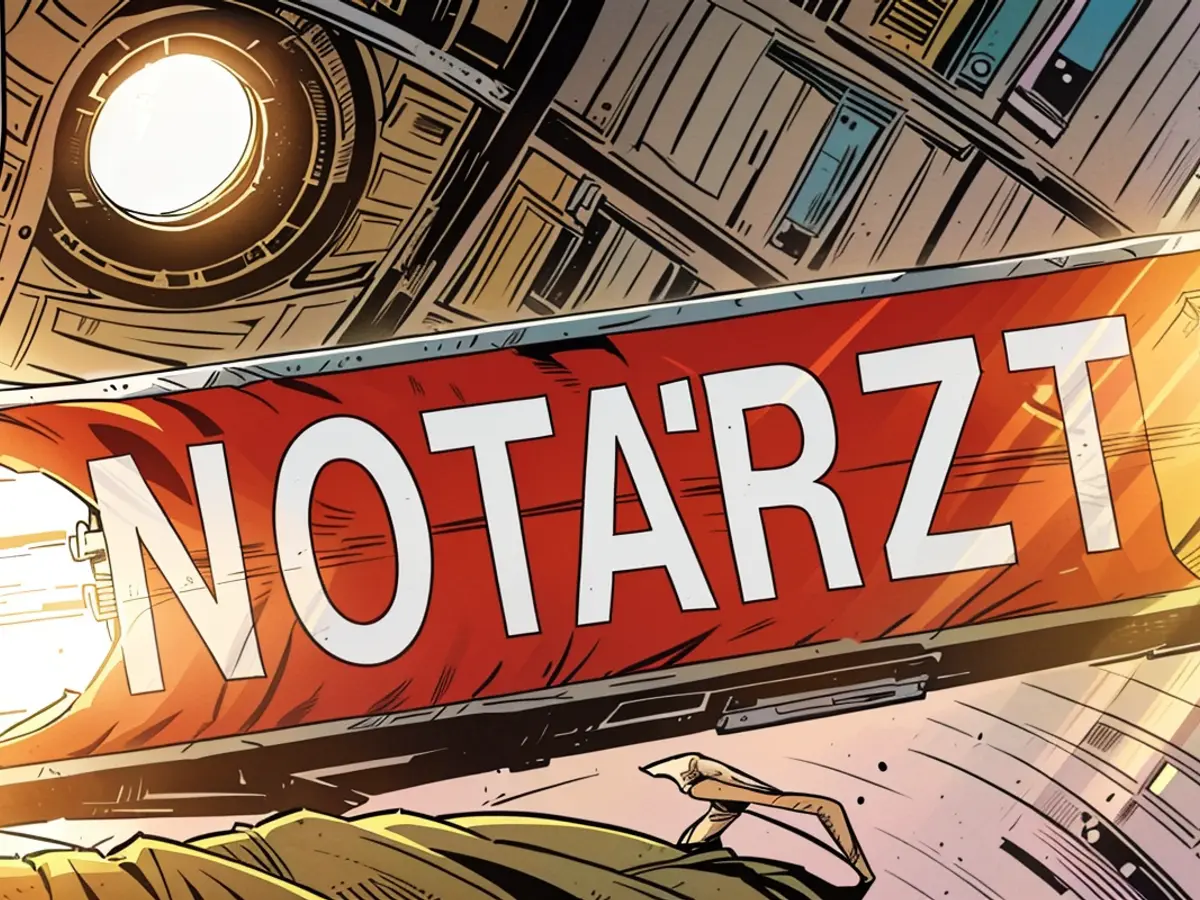Kremlin critic Yaschin: I did not want to be exchanged
Russian politicians Jachin and Kara-Mursa level serious allegations against the Kremlin one day after their release. They claim to have been expelled from Russia against their will. Jachin recounts how he initially wanted to return to his homeland upon arrival in Cologne, and why he ultimately decided against it.
Russian opposition politician Ilya Yashin does not consider his release a prisoner exchange, but rather an "illegal expulsion against my will." He stated this at a press conference of exchanged Russian opposition politicians in Bonn. Yashin was released from prison and brought to Germany on Thursday as part of a deal between Russia and the West.
"I said from the first day in prison that I was not ready for an exchange. I publicly asked not to be included in the exchange lists," said the 41-year-old. "This was my conscious stance." Before his imprisonment, he refused to leave Russia despite the threat of arrest, as he considered himself a Russian politician and patriot. "I understood my imprisonment not only as a fight against the war, but also as a fight for my right to live in my country and engage in independent politics there." It was illegal to expel him from Russia against his will. "I want to be honest with you, I want to tell you how it is: What I want most now is to return home," said Yashin.
While he is glad to be free, his first thought upon arrival in Germany was to buy a ticket and return to Russia. However, he decided against it because such a step would reduce the chances of further extraditions of political prisoners from Russia. An employee of the Russian security service FSB who had escorted him said goodbye with the words: "Of course, you can return to Russia like Navalny. You will be arrested like Navalny. And you will end up like Navalny." It was made clear to him that his return to Russia would rule out any exchange of Russian political prisoners in the foreseeable future.
Kara-Mursa: "No one asked for our consent"
Russian opposition figure Vladimir Kara-Mursa, who also participated in the press conference, said he had categorically refused to write a pardon application to Putin, just like Yashin. He referred to the Russian constitution, which prohibits the expulsion of Russian citizens without their consent. "No one asked for our consent," said Kara-Mursa.
The politician thanked Chancellor Olaf Scholz and the Germans. "It was not an easy decision for Chancellor Scholz," he said. "Yesterday, 16 lives were saved," emphasized Kara-Mursa. "I don't think there's anything more important in the world." The 42-year-old added that he wanted to thank "all the people in Germany who have been and continue to be committed to the liberation of political prisoners."
Kara-Mursa made it clear that he would continue his resistance against Putin. The Kremlin chief is "a dictator, an usurper, and a murderer" responsible for the death of Kremlin critic Alexei Navalny in Russian detention, as well as the deaths of numerous Ukrainian children.
Kara-Mursa also said that one should distinguish between the Russian people and their president. "There are many people in Russia who are against the war and do not believe the Kremlin propaganda," explained Kara-Mursa. "It is wrong to associate the Russian people with the policies of the government," added opposition figure Andrei Pivovarov, who was also exchanged on Thursday.
Russia, Belarus, and several Western countries, along with the Turkish intelligence agency MIT, exchanged a total of 24 prisoners at Ankara airport on Thursday in an unprecedented move. In exchange for the release of political prisoners and Kremlin critics, Germany, the U.S., and partner countries released a convicted murderer and prisoners accused of espionage from Russia.
The European Union expressed its support for the released opposition politicians, stating that their release is a positive step towards respecting human rights and democratic values within Russia. Furthermore, the EU called on the Russian government to cease its perceived political persecution and promote a more inclusive and democratic political landscape.
